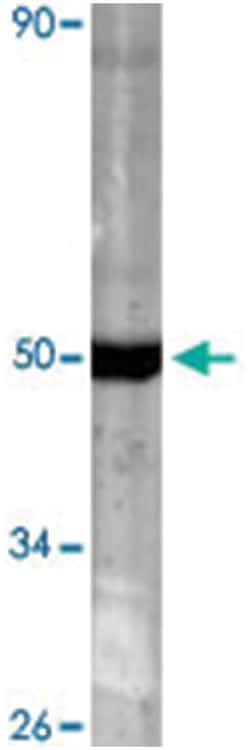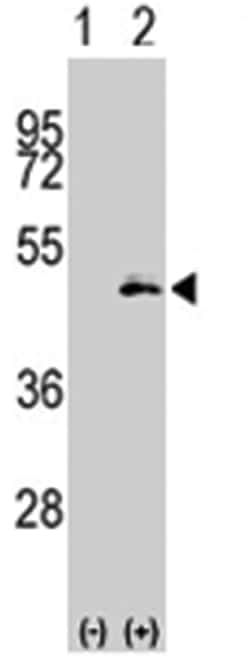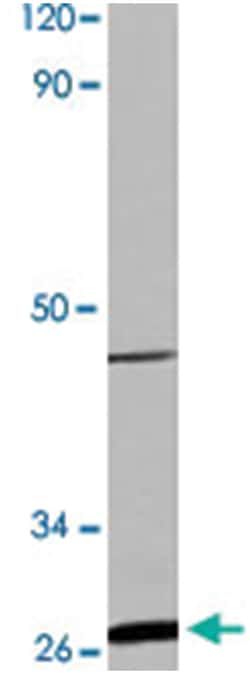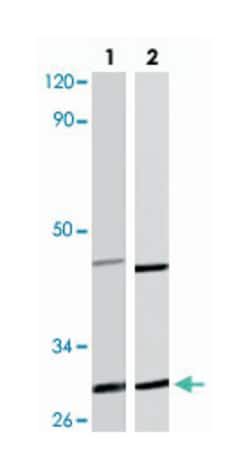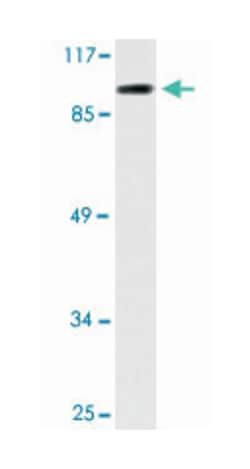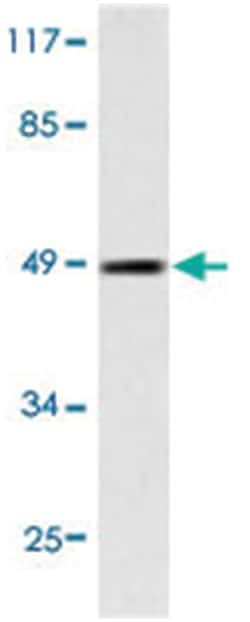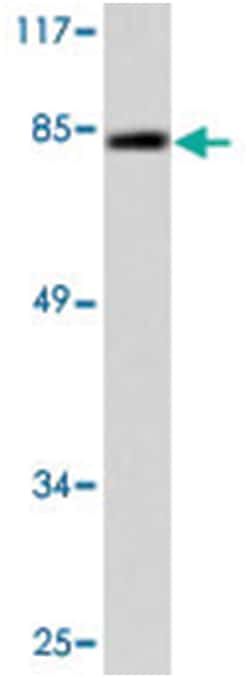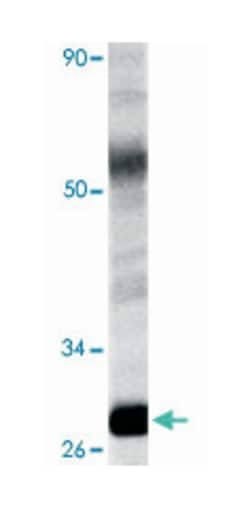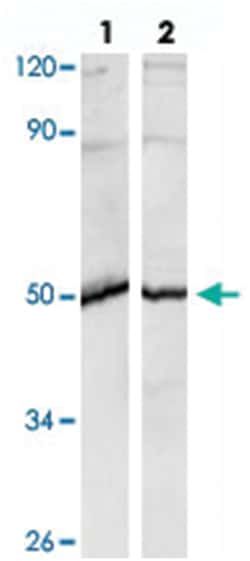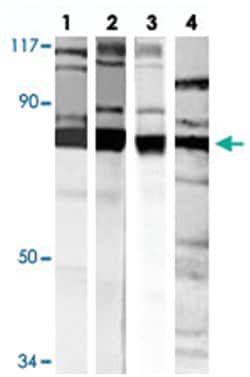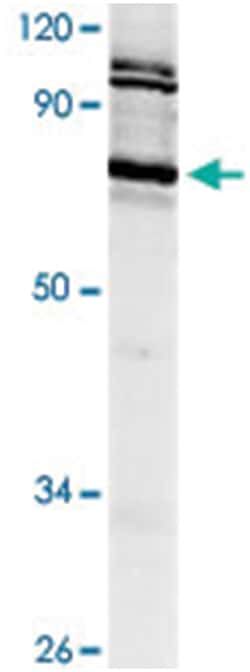MAP2K1 (phospho S298), Rabbit anti-Human, Polyclonal Antibody, Abnova™
Manufacturer: Abnova Corporation
Select a Size
| Pack Size | SKU | Availability | Price |
|---|---|---|---|
| Each of 1 | 89-126-401-Each-of-1 | In Stock | ₹ 87,220.00 |
89-126-401 - Each of 1
In Stock
Quantity
1
Base Price: ₹ 87,220.00
GST (18%): ₹ 15,699.60
Total Price: ₹ 1,02,919.60
Antigen
MAP2K1
Classification
Polyclonal
Description
Rabbit polyclonal antibody raised against synthetic phosphopeptide of MAP2K1.
Formulation
In PBS, pH 7.2 (0.09% sodium azide)
Gene Alias
MAPKK1/MEK1/MKK1/PRKMK1
Host Species
Rabbit
Purification Method
Antigen affinity purification
Regulatory Status
RUO
Gene ID (Entrez)
5604
Target Species
Human
Form
Liquid
Applications
Western Blot
Conjugate
Unconjugated
Dilution
Western Blot (1:500-1:1000) The optimal working dilution should be determined by the end user.
Gene
MAP2K1
Gene Symbols
MAP2K1
Immunogen
Synthetic phosphopeptide corresponding to residues surrounding S298 of MAP2K1.
Quantity
100 μL
Primary or Secondary
Primary
Test Specificity
MAP2K1 (phospho S298) polyclonal antibody detects endogenous levels of MAP2K1 protein.
Content And Storage
Store at 4°C. For long term storage store at -20°C.Aliquot to avoid repeated freezing and thawing.
Description
- The protein encoded by this gene is a member of the dual specificity protein kinase family, which acts as a mitogen-activated protein (MAP) kinase kinase
- MAP kinases, also known as extracellular signal-regulated kinases (ERKs), act as an integration point for multiple biochemical signals
- This protein kinase lies upstream of MAP kinases and stimulates the enzymatic activity of MAP kinases upon wide variety of extra- and intracellular signals
- As an essential component of MAP kinase signal transduction pathway, this kinase is involved in many cellular processes such as proliferation, differentiation, transcription regulation and development
- [provided by RefSeq
